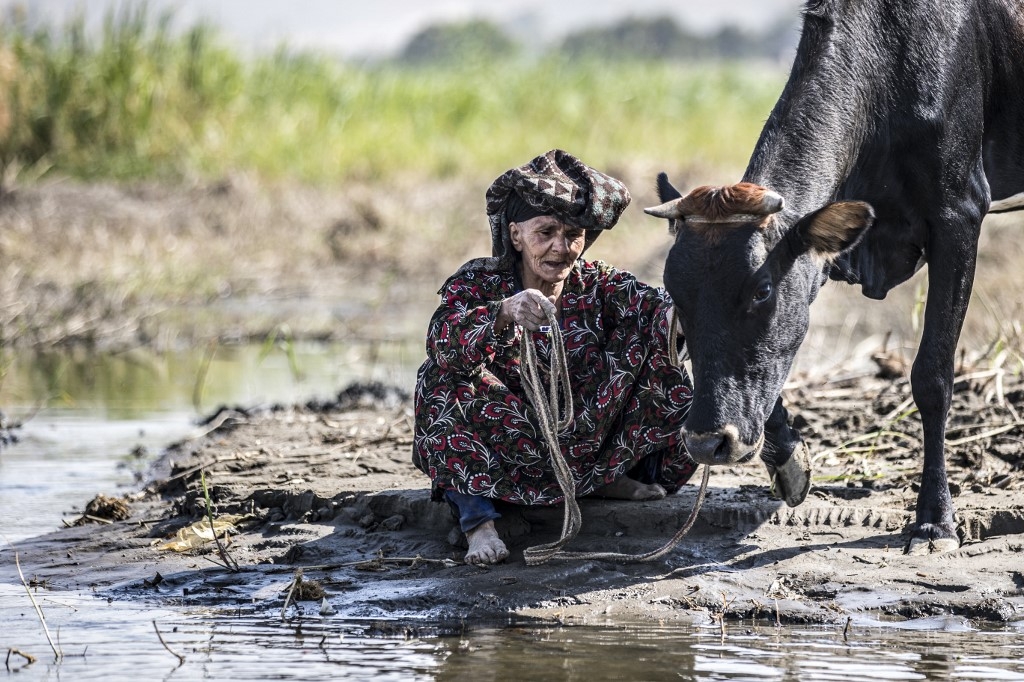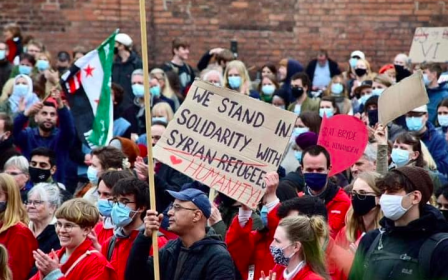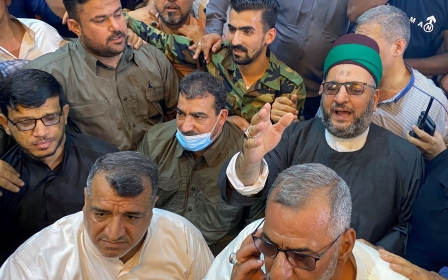Arabic press review: Egypt stands to lose 72 percent of farmland over dam

Dam could see Egypt lose 72 percent of farmland
Egypt could lose as much as 72 percent of its farmland when the latest phase of the Grand Ethiopian Renaissance Dam is completed, according to a new study cited in the London-based Al Quds al-Arabi.
The study, conducted by NASA, the University of Southern California and Cornell University, finds that while the dam offers development opportunities for Ethiopia, the changing flow of the Nile River will lead to significant water deficits in Egypt.
Egyptian scientist Essam Heggy, who worked on the study, said that if the deficits created by the completion of the second phase of the dam's construction are not addressed with a joint agreement for water storage, he expects Egypt to lose up to 72 percent of its arable land.
The loss of water - which he estimated could be as much as 40 percent of Egypt's current water share - could see unemployment rates rise to 25 percent and the gross domestic product drop by as much as 8 percent.
"Egypt will overcome this crisis, but at a high price, which will make it more vulnerable to other water and environmental crises looming over a near horizon," Heggy said.
"The quick profit diggers investing in the Renaissance Dam project are fully responsible for the disaster that could take place not only in Egypt but in the entire region, as well as the destruction of a river which represents is the cradle of human civilization and the legacy of all mankind."
Damascus real estate boom
A jump in sales of Syrian real estate in government-held areas around Damascus is being fuelled by Iranian investors who are buying from residents who are selling because they cannot afford to rebuild their homes, Arabi 21 reports.
Syrian Finance Minister Kenan Yaghi recently announced that more than 1,850 properties had been sold in less than a month, totalling around $171m.
The minister made his comments in defence of criticism over a new real estate sales law that came into effect earlier this year and increases the amount of tax paid on property transactions.
'The real estate market in Syria has been monopolised by Iranian companies and regime loyalists, who are part of the new rich class that emerged during the war'
- Abdel Nasser Hoshan, Syrian Legalists Committee
Many had expected that the new law would slow sales as a result of the increased levies, so questions were raised by Yaghi's comments, Arabi 21 reported.
Abdel Nasser Hoshan, a lawyer and member of the Syrian Legalists Committee, told Arabi 21 that the sales Yaghi referenced were part of the "Reconstruct South Damascus" project launched by a majority of Iranian investors.
"The real estate market in Syria has been monopolised by Iranian companies and regime loyalists, who are part of the new rich class that emerged during the war," Hoshan said.
Journalist Shams al-Din Mata'un, who is from Damascus, confirmed that most of the residents of Damascus suburbs, especially the destroyed areas, are selling their properties because they cannot afford to repair and rebuild them again.
"As for those who migrated to northern Syria and abroad, they lost hope of a near return to the country, especially after the farcical elections held by the regime last month," Mata'un told Arabi21.
"After facing the fact that the world silently accepted [Syrian President Bashar] al-Assad's re-election for a new seven-year term, those Syrians consider now that staying abroad is a very probable idea that requires a lot of money."
Regarding the companies buying real estate in Syria, the journalist said: "They are mostly warlords from outside the areas where the properties are being sold because investors could not find any favourable conditions to invest in the Syrian market during the current circumstances."
Iraqi food crisis looms
Iraqi officials warn of a looming food crisis as the dinar continues to depreciate and the country remains reliant on imports to secure basic food needs, reports the London-based Al-Araby al-Jadeed.
The warning comes against a backdrop of security and political confusion as the country prepares for early elections and a staggering financial crisis that has seen an unprecedented rise in food prices.
Iraqi MP Ali al-Budairi, a member of the Parliamentary Agriculture and Water Committee, told Al-Araby al-Jadeed that the government has yet to address the potential food crisis.
'There is a complete absence of a process to sort out the threats that the country is affected by, especially since Iraq relies heavily on imports to secure its food necessities'
- Ali al-Budairi, Iraqi MP
“Unfortunately, the government did not conduct any studies or clear plans to counter these risks," he said.
"There is a complete absence of a process to sort out the threats that the country is affected by, especially since Iraq relies heavily on imports to secure its food necessities."
An official in Baghdad told Al Araby al-Jadeed that the government has not yet developed plans to confront the food crisis because it is not yet clear a crisis will materialise.
"There is no doubt that the government will have plans if the concerns raised about the crisis are real, especially since what is happening now consists of mere speculations, and it is uncertain that Iraq would face a crisis," the official said.
*Arabic press review is a digest of reports that are not independently verified as accurate by Middle East Eye
Middle East Eye propose une couverture et une analyse indépendantes et incomparables du Moyen-Orient, de l’Afrique du Nord et d’autres régions du monde. Pour en savoir plus sur la reprise de ce contenu et les frais qui s’appliquent, veuillez remplir ce formulaire [en anglais]. Pour en savoir plus sur MEE, cliquez ici [en anglais].




